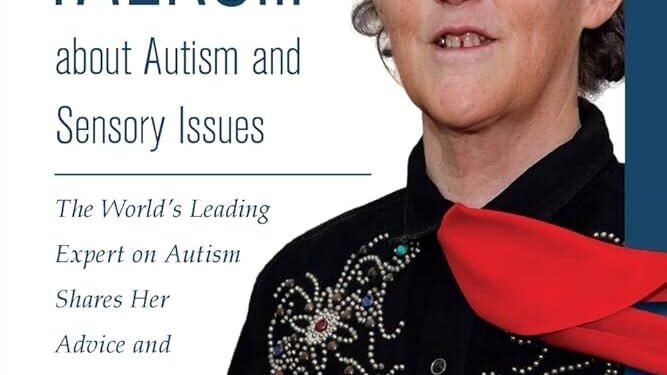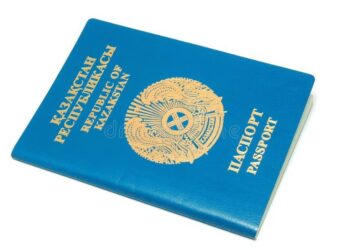Third Annual Autism Talks Held in Almaty, Kazakhstan – A Unique Intersection of Autism Awareness and Chess
Almaty, Kazakhstan – The Third annual Autism Talks took center stage this week, bringing together experts, advocates, and enthusiasts from around the globe to discuss autism awareness and the unique intersection of this topic with the world of chess. Organized in partnership with the International Chess Federation (FIDE), the event aimed to shed light on the cognitive benefits of chess for individuals on the autism spectrum while fostering a deeper understanding of autism through innovative dialog and shared experiences. With a series of keynote speeches, panel discussions, and interactive workshops, the autism Talks are poised to not just enhance understanding and inclusivity for individuals with autism but also to create a lasting impact on how the game of chess can serve as a powerful tool in social progress and education. As advocates strive for a more inclusive society, this gathering emphasizes the importance of community support, educational resources, and the transformative power of chess.
Third Annual Autism Talks Promotes Inclusion Through Chess in Almaty
The third annual Autism Talks in Almaty highlighted the significant role that chess plays in fostering inclusion for individuals with autism. This year’s event brought together educators, parents, and advocates to discuss innovative approaches to enhancing social skills and cognitive development through chess. Participants engaged in hands-on workshops that demonstrated the unique benefits of incorporating the game into various educational settings. Attendees underscored that the strategic nature of chess not only nurtures critical thinking but also serves as an effective communication tool for individuals on the autism spectrum.
The event featured notable figures from the International Chess Federation (FIDE) who emphasized chess as a medium for empowerment and social engagement. The program included:
- Interactive Chess Demonstrations: Showcasing techniques and strategies suitable for various skill levels.
- Panel Discussions: Focused on personal success stories and strategies for fostering engagement.
- networking Opportunities: Connecting educators and families with resources and communities.
| Time | Event | Speaker/Facilitator |
|---|---|---|
| 10:00 AM | Opening Keynote | Dr. Aigerim Suyunova |
| 11:30 AM | Workshops | Chess Masters Team |
| 2:00 PM | Panel Discussion | Various Experts |
Insights from Experts: Bridging the Gap Between Autism and Chess
At the third annual Autism Talks held in Almaty, Kazakhstan, the intersection of chess and autism emerged as a focal point for discussions among leading experts in both fields. Chess,frequently enough hailed as a game that fosters critical thinking,strategic planning,and problem-solving,was highlighted for its unique potential to engage individuals with autism. experts shared insights on how the structured environment of chess can offer therapeutic benefits and create opportunities for social interaction in a safe and controlled setting. Notable speakers emphasized the following key advantages:
- Enhanced Focus: Chess requires concentration, helping players develop attention skills.
- Social Skills Development: Engaging in chess clubs encourages communication among peers.
- Cognitive Growth: The game promotes analytical thinking and creativity in problem-solving.
among the attendees was a panel of psychologists and chess educators who presented a collaborative model combining therapeutic techniques with chess instruction.A notable component was a workshop demonstrating adaptive chess programs tailored for different skill levels and cognitive abilities. A table showcasing common strategies used in these programs was also presented, illustrating their commitment to inclusivity:
| Strategy | Description |
|---|---|
| Visual supports | Using images and diagrams to clarify chess movements. |
| Structured Learning | Breaks down lessons into manageable steps. |
| Peer Mentoring | Pairing players for collaborative learning experiences. |
Recommendations for Enhancing Support systems in Autism awareness Initiatives
Enhancing support systems within autism awareness initiatives can significantly improve the quality of life for individuals on the spectrum and their families. First and foremost, organizations should collaborate with local communities to foster a deeper understanding of autism. This can be achieved through educational workshops, parent support groups, and sensory-friendly events specifically designed to raise awareness. Engaging schools and educational institutions in these discussions can also pave the way for integrating autism-friendly practices into everyday environments, promoting inclusion from an early age. Furthermore, leveraging digital platforms for outreach and education can augment conventional methods, reaching a broader audience while providing accessible resources.
In addition, fostering partnerships between government agencies, non-profits, and the business sector is vital in creating a complete support network. These partnerships can facilitate the development of employment opportunities tailored for individuals with autism, as well as promote training programs for employers on inclusivity and understanding neurodiversity. Additionally, implementing feedback mechanisms that allow families and individuals to voice their needs can inform future initiatives and ensure they are relevant and impactful. A coordinated effort involving all stakeholders will ultimately yield a more robust and responsive system dedicated to autism awareness and support.
To Wrap It Up
the third annual Autism Talks held in Almaty, Kazakhstan, marked a significant milestone in the ongoing dialogue about autism and its intersection with the world of chess. Organized under the auspices of the International Chess Federation (FIDE),this event brought together experts,advocates,and chess enthusiasts to explore innovative ways to support individuals on the autism spectrum through the cognitive and social benefits of chess. The discussions not only highlighted the importance of creating inclusive environments but also showcased success stories that inspire hope and progress.As participants returned home, the conversations sparked in Almaty are sure to reverberate, fueling advocacy, awareness, and acceptance in communities worldwide. With FIDE leading the charge, the future looks brighter for individuals with autism, proving once again that chess can be much more than just a game—it can be a powerful tool for transformation and empowerment.
















Hegseth Attends Ukraine Defense Group Only Virtually – The New York Times